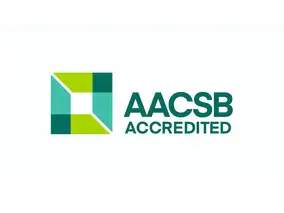Where you can study
International students
International students are not New Zealand citizens or residents.
Specialise in Linguistics for your Bachelor of Communication at Massey
In the Bachelor of Communication (Linguistics), you will explore how language works to generate meaning and how it is used not only to share information, but also to manage social relations and influence behaviour. You will also learn about the unwritten rules that shape all of our social interactions.
At the heart of our lives
Language is at the heart of communication. Linguistics is the study of human languages. It helps you understand how language has evolved, how it is structured and how it is used today to communicate in a range of settings.
While studying linguistics, you might for example:
- examine murderers’ text messages
- comment on a failed media interview
- explore the place of te reo Māori in NZ communication
- listen to global hip hop to track the influence of African-Americanisms
- investigate how we use language to construct our gender and sexuality.
Skills sought-after by employers
You will learn transferable skills that employers seek. You'll gain excellent written and oral communication skills and an ability to understand the subtexts of communication from others.
Employment opportunities
85% of graduates are employed within six months of graduation. These graduates are employed across nine different industry categories with more than 60 different job titles.
Gain a relevant qualification
Massey University’s linguistics major offers courses that specifically examine language in New Zealand and the Pacific, ensuring relevant, local context. Other courses like forensic linguistics will help you understand corporate-related areas such as intellectual property and authorship identification. You will enjoy studying towards an interesting, relevant qualification.
A Bachelor of Communication in Linguistics is a good fit if you:
- have a curious mind
- love to know how things work
- are interested in the ways language can help or hinder successful communication in both social and professional spheres.
Planning information
Full-time study in your first year comprises eight 15-credit courses, for a total of 120 credits. We recommend studying 60 credits per semester. You may also wish to take some courses at summer school but ensure you include those that are required for the next level of courses.
Although you are asked to nominate your BC major and minor when enrolling, please be aware that you can change these once you are enrolled.
No course can be credited to a major and a minor.
This major
Completing a major is compulsory. The Linguistics major requires 120 credits including at least 60 credits at 200 level and 60 credits at 300 level.
Minors
Completing a minor is compulsory.
Minors increase the breadth of your degree. They give you extra knowledge, attributes and capabilities.
The Linguistics major is from the College of Humanities and Social Sciences. That means you can choose a minor from the list of majors the Massey Business School offers:
- Communication Management
- Digital Marketing
- Journalism
- Public Relations
A Linguistics minor (for students who are studying a different degree)
If you are not studying a Bachelor of Communication and wish to complete a minor in Linguistics see the Bachelor of Communication regulations for requirements.
Official regulations
To understand what you need to study and must complete to graduate read the official rules and regulations for this qualification.
You should read these together with all other relevant Statutes and Regulations of the University including the General Regulations for Undergraduate Degrees, Undergraduate Diplomas, Undergraduate Certificates, Graduate Diplomas and Graduate Certificates.
Returning students
For returning students, there may be changes to the majors and minors available and the courses you need to take. Go to the section called ‘Transitional Provisions’ in the Regulations to find out more.
In some cases the qualification or specialisation you enrolled in may no longer be taking new enrolments, so may not appear on these web pages. To find information on the regulations for these qualifications go to the Massey University Calendar.
Please contact us through the Get advice button on this page if you have any questions.
Courses you can enrol in
Course planning key
- Prerequisites
- Courses that need to be completed before moving onto a course at the next level. For example, a lot of 200-level courses have 100-level prerequisite courses.
- Corequisites
- Courses that must be completed at the same time as another course are known as corequisite courses.
- Restrictions
- Some courses are restricted against each other because their content is similar. This means you can only choose one of the offered courses to study and credit to your qualification.
Core courses for the Bachelor of Communication
As well as the specialisation courses listed below, this qualification has core courses that you will need to complete.
Bachelor of Communication core courses
Linguistics courses
Compulsory course
Course code: 172235 Linguistic Analysis of the English Language 15 credits
An introductory course in linguistic analysis of the English language covering the fundamental concepts of morphology, phonetics, phonology, and syntax.
View full course detailsCourse code: 172232 Language and Society in New Zealand 15 credits
An introduction to sociolinguistics with particular reference to New Zealand: focussing on language and social interaction, regional and social variation in language use, bilingualism and the status of minority languages, and the sociolinguistics of te Reo Māori.
View full course detailsCourse code: 172236 Forensic Linguistics 15 credits
An introduction to the study of forensic linguistics, focussing on a variety of business and legal contexts and related ethical issues.
View full course detailsCourse code: 172237 Language, Discourse and Power 15 credits
An introduction to critical discourse analysis, exploring how language is used in the reproduction of social inequalities.
View full course detailsCourse code: 172239 Language and Culture 15 credits
An examination of the interrelationship between/of language and culture through a study of various elements of language, language use and language acquisition in a wide range of cultural contexts.
View full course detailsCourse code: 172333 Discourse and Institutions 15 credits
A critical examination of public and private-sphere discourses in institutional contexts through linguistic theories and methods.
View full course detailsCourse code: 172335 Language and Identity 15 credits
An advanced sociolinguistic study of how language is used to represent and construct aspects of identity relevant to particular social interactions, including the individual’s ability to negotiate multiple forms of identity and belonging.
View full course detailsCourse code: 172336 Languages of the Pacific 15 credits
An examination of the three major language subgroups spoken in the Pacific, focussing on their formal elements, the relationship between language and society, and the linguistic consequences of the encounter between Pacific peoples and speakers of non-Pacific languages.
View full course detailsCourse code: 172338 Language, Diversity and Mediated Communication 15 credits
An examination of one-to-many communication in the Web and mediated contexts, focussing on globalised and transcultural communication of linguistic perspectives.
View full course detailsEntry requirements
Admission to Massey
All students must meet university entrance requirements to be admitted to the University.
Specific requirements
There are no specific entry requirements for this qualification, outside of university admission regulations.
English language requirements
To study this qualification you must meet Massey University's English language standards.
English language skills
If you need help with your English language skills before you start university, see our English for Academic Purposes (EAP) courses.
Can't meet the entry requirements?
If you need to do a course before you start your qualification, there may be options for you in Summer School.
Fees and scholarships
Fees, student loans and free fees scheme
Your tuition fees may be different depending on the courses you choose. Your exact fees will show once you have chosen your courses.
There will also be some compulsory non-tuition fees and for some courses, there may also be charges for things such as study resources, software, trips and contact workshops.
- Get an estimate of the tuition fees for your qualification
- View a list of non-tuition fees that may be payable
Already know which courses you're going to choose?
You can view fees for the courses that make up your qualification on the course details pages.
Student loans (StudyLink) and Fees Free scheme
You may be eligible for a student loan to help towards paying your fees.
The New Zealand Government offers fees-free tertiary study for eligible domestic students. Find out more about the scheme and your eligibility on the Fees Free website. To use the site's eligibility checking tool, you will need your National Student Number.
Current and returning Massey students can find their National Student Number in the student portal.
- Student loans (StudyLink)
- Fees Free
- Student portal
Fees disclaimer
This information is for estimation purposes only. Actual fees payable will be finalised on confirmation of enrolment. Unless otherwise stated, all fees shown are quoted in New Zealand dollars and include Goods and Services Tax, if any. Before relying on any information on these pages you should also read the University's Disclaimer Notice.
Careers and job opportunities
This degree gives you a skill-set that is attractive to employers, but also provides flexibility for career pathways.
Careers could include work as a technical or specialist writer, in market research and analysis. Large technology companies seek graduates to work on natural language processing, speech analysis and data collection.
Your highly sought-after skills will also be useful for roles in communication, writing for the web and editing. In fact, with any position that deals with language.
Skills you will learn:
- analytical skills
- logical thinking
- ability to produce clear communication
- ability to diagnose communication effects and processes
- ability to advise on the role of specific language strategies as part of a broader communication strategy
- ability to understand language structures at the root of all languages, not just English. This will enhance cross-cultural communication and foreign language learning.
International students
New Zealand is a great place to study. Massey University’s reputation is supported by our international rankings, accreditations and associations. We are rated five star plus by the QS World University Rankings.
Massey University has small class sizes, and our lecturers and staff are friendly and approachable.
As an international student, there are entry requirements that will apply to you. We recommend that you apply at least three months before your anticipated start date so your application can be processed in time. There are additional steps you will need to take. These include obtaining a visa and travel bookings if your study is to be in New Zealand.
What our students say
“Linguistics gave me a greater appreciation and understanding of language, ideologies and motivations. My study through Massey has been one of the cornerstones in catalysing my career.”

Accreditations and rankings

Association to Advance Collegiate Schools of Business (AACSB)
Massey Business School is rated in the top 5% of global business colleges by AACSB International.

QS Ranking - Communication and Media
Massey is ranked by QS (Quacquarelli Symonds) as one of the top 100 universities for communication and media studies. QS is an organisation that ranks universities worldwide in various topics.

ShanghaiRanking - Communication
Communication at Massey is ranked #1 in New Zealand, and 76th in the world, by ShanghaiRanking.
Related study options
Linguistics – Graduate Certificate in Arts
Use language to drive your career. With Massey’s Graduate Certificate in Arts (Linguistics), you can study linguistics without completing a second bachelor’s degree.
Linguistics – Bachelor of Arts
Equip yourself with the knowledge and empathy to lead cross-cultural interactions. Through the study of linguistics, you’ll grow your ability to drive social change and shape the future of our nation.
Linguistics – Diploma in Arts
Build on your understanding of how language works. Massey’s Diploma in Arts (Linguistics) will teach you the concepts and structures in languages and cultures around the world.
Linguistics – Graduate Diploma in Arts
Use language to drive your career. The Graduate Diploma in Arts (Linguistics) will give you the equivalent of an undergraduate major in linguistics without completing a second bachelor’s degree.
Postgraduate Certificate in Applied Linguistics – PGCertAppLing
Opening opportunities for work and research in language teaching.
Without Specialisation – Master of Applied Linguistics
Take your career to the next level with Massey’s Master of Applied Linguistics. Help make second-language teaching more accessible in a multilingual world.
Useful planning information

Key information for students
Compare qualifications and academic information across different New Zealand institutions. Learn more on careers.govt.nz